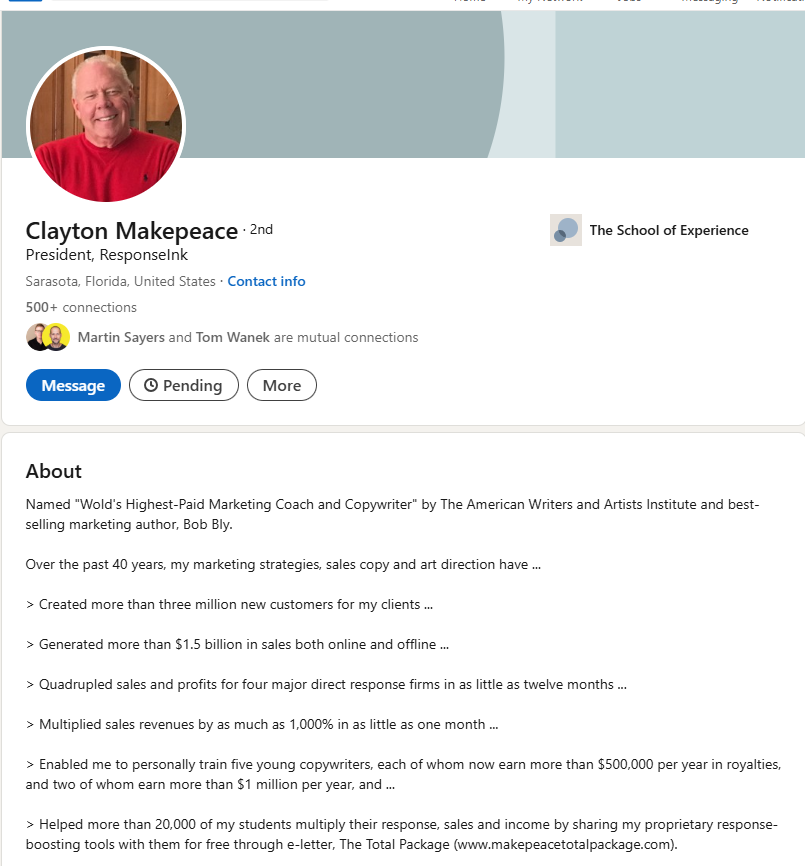How to Become an Original Writer in the AI World
4 lessons from 250+ hrs of reading & experimenting
Originality is the ultimate currency in today’s world, especially if you’re a writer.
But the question is:
How can you stay original when every single day, AI tools are mushrooming around the corner, waiting for your command to spoon-feed you everything you want?
I’ve an answer (based on personal experiences).
And I’m going to share that with you in the form of 4 hacks.
Let’s go!
#1 — Increase Your Ingredients
We as humans carry a packet of ingredients with us in the form of our skills, knowledge, life experiences, interests, memories, etc.
Every sentence that you write, whether consciously or not, draws from the same ingredient packet that you carry.
You can either create a world-class dish or a crap. It all depends on the ingredients you use.
So, to make your dish (writing) better and original, you’ve to change your ingredients (things I’ve already shared).
How will you do it?
Learn from a better cook, i.e., find someone, virtually or physically, who can help you go from 0 to 1 to 100, and then learn from them. Right now, I’m learning from Elna Cain.
Remove the mental clutter. Plus, use your smartphones wisely.
#2 — Raise the Bar, Remove the Chaff
Since your childhood, you’ve been told to set the bar low. Why? Because it’s easy!
But to be an original writer, you’ve to raise the bar.
How will you do it?
Filter out your online circle. Remove people who tell you to settle for less.
Read things that punch you in the gut or challenge your pre-existing beliefs. Dan Koe’s letters can help you with that!
Find and read more real stories. It’s hard, but you’ll have to remove the chaff to find the wheat.
Train your brain for ‘delayed gratification’.
Choose depth over volume (after some time).
Don’t consider someone else’s map as your blueprint.
Go back in time. You don’t need to learn from current creators to be the best. There are some incredibly creative people in the past who’ve already laid the path, you just need to dig deep. I recently came to know about such a person via email, and his name is Clayton Makepeace. (Read his about section and you’ll know!)

#3 — Don’t Buoycate AI (It’s NOT That Bad!)
There is a constant debate going on online about whether AI is good or bad. I won’t get into that (may be in some future posts).
I don’t know what your take is on this debate, but whatever it is, the brutal truth is — AI is here to stay.
In fact, Sam Altman has already stated that AI agents will enter the workforce this year.
Slowly and steadily, AI is (and will) continue to penetrate into the different parts of our lives, and writing is one of them.
As a writer, you’ve two options:
Option 1: Declare war on AI (which isn’t practical)
Option 2: Start embracing it and use it to your advantage (which is beneficial)
You should go with option 2.
How to use AI in writing?
Use AI as a brainstorming buddy, not as your replicant. Let it write your headlines, structure the blog post, or complete the sentences where you get stuck (as Elna does), but don’t let it write a complete blog post for you.
Choose the right tools. Yes, ChatGPT is amazing, but the list doesn’t end here. There are so many awesome tools that can help you in numerous ways, like Perplexity, Deep Research, Google AI Studio, Notion AI, etc.
Check this post.
#4 — Come Out of Your Cocoon
Don’t think you can learn writing magically!
You’ve got to come out of your comfort zone to be able to start practicing this skill.
Remember: Originality is the second thing; first is practice.
How to practice writing when you’re short of time:
Find your power hours and squeeze them.
Start with what you’ve got.
Collect ideas so you don’t burn out too quickly.
Develop the right habits.
Grew a thick skin (it’s a must!)
Implement writing techniques
That’s all for today.
See you next week.
💡Wins + Quick Announcement
I deleted my old LinkedIn profile with 7K followers after working on it for 5 months. Started again and got even better engagement on my posts.
Failures aren’t always bad!
I’ve been learning a lot about newsletters lately and I’m making a few changes to make this one even better for you. You’ll hear from me next Saturday and every Saturday after that. Excited for what’s coming😃



Great article!
Another fantastic piece, Sweta. I was one of those writers who cringed when AI came out. But now I use it as my assistant. I use it for research for example, I write fiction, so when I need names for some characters, I go to Gemini and ask it to provide me names for x,y,z character with these traits, they are young middle aged they are a vampire slayer and whatever role they are playing. To be honest, Gemini kicks out better names than some character generators. I also use it for tweaking articles. I put in my outline the research I have completed and asked it to format and make it make sense, and then I tweaked it again with Hemingway with some final touches of my own, and it came out pretty decent. What I love about AI is the same time it saves me on things as a writer. Thanks so much for sharing such fantastic, wonderful tips for us writers. You rock.